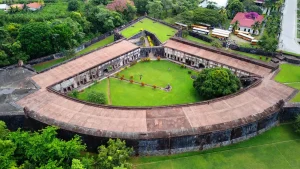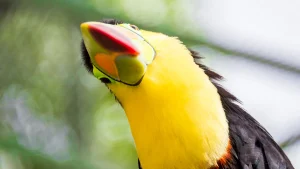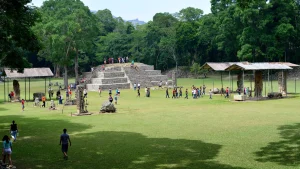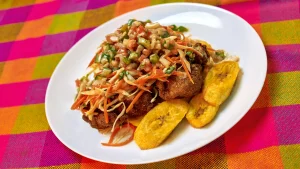Obligations and Benefits when traveling to Honduras
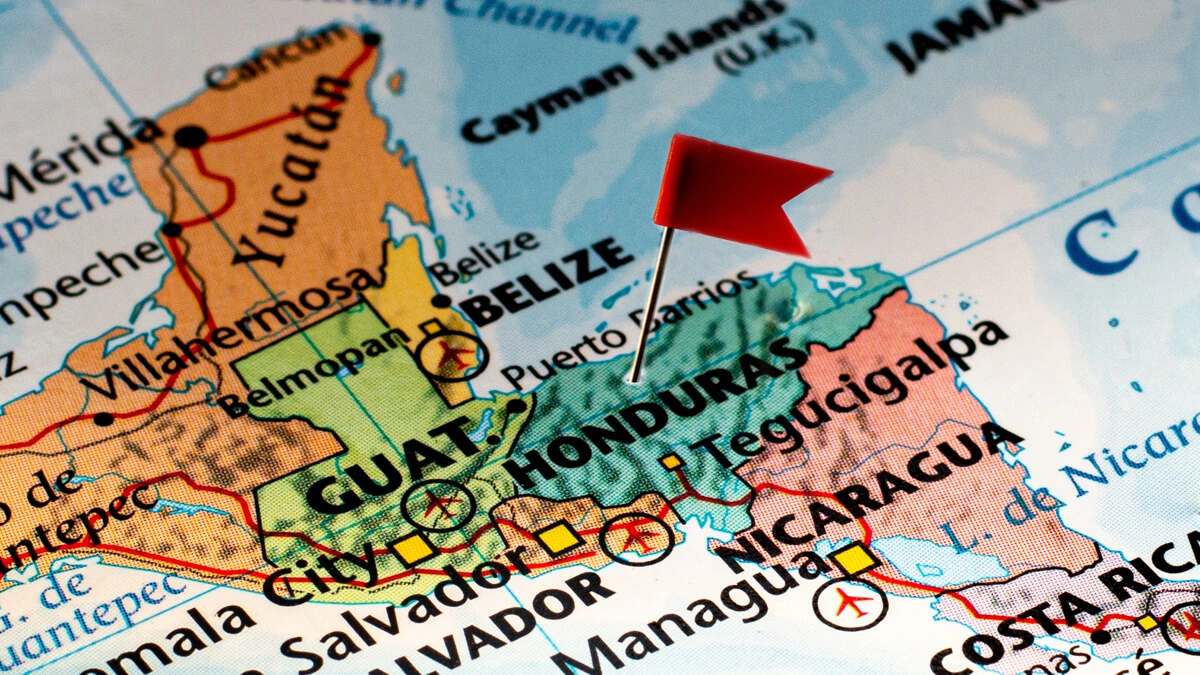
Travelers who wish to travel to Honduras must comply with a series of obligations that in order to enter the Honduran territory at the same time that they have a series of benefits whether you are a national or foreign citizen.

Traveler, what is the essential thing you should know?
Traveler’s Obligations
Every traveler who arrives in Honduran territory through any customs point by air, land or sea must make a declaration on the form provided by the Honduran Customs Service. In the case of a family group, only one baggage declaration will be made.
When entering or leaving Honduras, any national or foreign person is obliged to declare whether or not they are transporting money, electronic purses, values of negotiable instruments such as bearer traveler’s checks or any other title, value of immediate convertibility, equal to or greater than Ten One thousand dollars of the United States of America (US $ 10,000.00) or its equivalent in national or foreign currency.
Regional Traveler Affidavit
Every traveler who arrives at the customs territory by any authorized route must make a declaration on the form issued by the Customs Service for this purpose.
Airlines and, in general, companies dedicated to the international transport of people are obliged to collaborate with the Customs Service to control the entry of travelers and their luggage, including providing the declaration form.
In the case of a family group, a single declaration will be made. Article 579 of the Regulation of the Central American Uniform Customs Code (RECAUCA).
Uniform Procedure for the control of the cross-border transfer of cash Article 34 of Decree 144-2014 Special Law Against Money Laundering.
Any national or foreign person who enters or leaves the country, through air, sea and land customs, is obliged to present the Regional Affidavit of traveler provided by the Customs Administration, in which they notify whether or not they are transporting money, electronic purses, securities of negotiable instruments such as bearer traveler’s checks or any other immediately convertible security, equal to or greater than Ten Thousand Dollars of the United States of America (US $ 10,000.00) or its equivalent in national or foreign currency. Article 34 Special Law Against Money Laundering.
Process
- The carrier (air, land or sea) will provide the format of the Customs Declaration for the passenger regime to the passenger who enters or leaves the Honduran territory, failing that the Customs Authority, in the case of private vehicles or when involuntary omission the transport company did not provide it.
- The traveler fills out and signs the information requested in the Customs Declaration form for the traveler’s regime, which they must present to the customs authorities upon arrival or departure from the country (air, sea or land).
- The person designated by the Customs Administration receives the Customs Declaration for the traveler’s regime, verifies that all the information requested is complete and duly signed by the traveler.
- In the event that the traveler declares cash, electronic purses, securities or negotiable instruments such as bearer traveler’s checks or any other immediately convertible security equal to or greater than $. 10,000.00 (Ten Thousand Dollars) of the United States of America or its equivalent in national currency or any foreign currency, the Customs Authority will provide you with Form DARA-002 Single Affidavit of international transportation of cash or immediate convertible securities equal to or exceeds the amount of $ 10,000.00 or its equivalent in any foreign currency, for its respective filling.
- The traveler delivers to the Customs Authority Form DARA-002, filled out and signed, along with a photocopy of the documents that prove the origin of the transported values.
- In the event that supporting documents are not presented on the origin of the reported values or there is doubt about them, the Police Authority or the Directorate for the Fight against Drug Trafficking (DLCN) will be informed for the corresponding actions in accordance with the law.
- The Customs Authority informs the competent Authorities accredited in the port of entry or exit by sea, air or land (DSA, DLCN, or Border Police) when the traveler reports that he is carrying or bringing amounts that exceed ten thousand US dollars (U $ 10,000.00), or its equivalent in national or foreign currency.
- The customs authority in conjunction with a detective from the Directorate for the Fight against Drug Trafficking (in the Customs or Air Guard where the DLCN is present) will process the information contained in each of the Customs Declarations for the traveler’s regime (The information that must be processed is the following: Traveler’s name, travel document number, Date of entry or exit from the country, destination or origin, amount of money reported in case you have declared more than ten thousand dollars, Customs of entry or exit to the country )
- In case the traveler carries or brings with him more than ten thousand dollars of the United States of America (U $ 10,000.00) and this is detected by the Airport Authority (put X-rays).
- a) The competent authority (DSA, DLCN, Border Police) contacts the Customs Authority to verify if the traveler reported the sums of money that he transports, carries, brings, or loads.
- b) The customs authority must provide the competent authorities (DSA, DLCN, Border Police) with the customs declaration for the traveler’s regime signed by the traveler.
- c) Yes, in the customs declaration for the traveler’s regime, he did not report that he had more than ten thousand dollars (US $ .10,000.00), the competent authority (Police or Directorate for the Fight against Drug Trafficking) will draw up a record stating the fact and the amount of money the traveler was carrying.
- d) The competent Authority (Police or Directorate for the Fight against Drug Trafficking) when the traveler is not detained, informs the customs authority of the fact and gives a copy of the certificate and sends or accompanies the traveler to the Customs office so that it imposes the administrative sanction.
- e) The Customs Authority ex officio will impose an administrative fine equivalent to one third (1/3) of the value of the assets that have not been declared.
Traveler Regime
The CAUCA in its articles 112,113,114 and articles 578, 579, 580, 581, 582, 583 of the RECAUCA, establish that the traveler’s luggage is considered to be goods for personal use or for the exercise of their profession during the course of their trip, always and when they are not for commercial purposes.
1. Traveler’s baggage allowance
- Clothing.
- Items for personal use and other items in a quantity proportional to the conditions of the traveler, such as:
– Jewelry
– Handbags
– Personal hygiene items or toiletries. - Medicines, food, instruments, medical devices, disposable items used with them, in quantities commensurate with the circumstances and needs of the traveler. Instruments must be portable.
- Traveler’s wheelchair if disabled.
- The car and toys of the children who travel;
2. Articles for recreation or sports
- Muscle tension equipment, treadmills and bicycles, both stationary and portable, surfboards, bats, bags, sports clothing, footwear and gloves, protective articles for baseball, soccer, basketball, tennis or others;
- Image recording apparatus, a photographic apparatus, a motion picture camera, a sound recording and reproducing apparatus, and their accessories; up to six rolls of film or magnetic tape for each; a broadcast receiver; a television receiver; a prismatic twin or long-sight glass, and a mobile phone, all portable;
- A personal computer; a calculator; an electronic agenda; all portable;
- Tools, tools, and manual instruments of the trade or profession of the traveler, provided that they do not constitute complete equipment for workshops, offices, laboratories, or other similar;
- Portable musical instruments and their accessories;
- Books, manuscripts, records, tapes and supports for recording sounds or similar recordings. Non-commercial prints, photographs and photogravures;
- Five hundred grams of tobacco made in any presentation, five liters of wine, brandy or liquor, for each traveler of legal age and up to two kilograms of sweets;
- Hunting and sports weapons, five hundred ammunition, a tent and other equipment necessary for camping, provided that it is proven that the traveler is a tourist. The entry of these weapons and ammunition will be subject to the regulations of each State Party on the matter; Y
3. Exemption from paying taxes for goods other than luggage Article 114 CAUCA
The traveler may introduce with exemption from taxes, merchandise that he brings with him, other than luggage, whose total value in customs does not exceed the equivalent of $ 500.00 five hundred Central American pesos.
The luggage may be:
a) Accompanied: when you enter together with the traveler;
b) Unaccompanied: when entering within the three months prior or subsequent to the date of arrival of the traveler to the customs territory, provided that it is verified that the goods come from the country of residence or from any of the countries visited by the traveler before entering Honduras.
4. Conditions to enjoy the exemption3 Article 582 RECAUCA
- That the goods that are imported, taking into account the quantity and class, will not be used for commercial purposes;
- That it is not a question of prohibited import merchandise;
- That he has remained a minimum of seventy-two hours outside the customs territory;
Benefit of the Absent Honduran
What is the Absent Honduran Law?
It is the Law established by Legislative Decree 185-86 dated November 21, 1986, which welcomes Hondurans living abroad and allows the introduction into the country of certain articles for personal use and electrical articles without payment of taxes.
Said Law is reactivated from November 15 to January 15. (2 month period).
What does the Absent Honduran Law establish?
Legislative decree 185-86; establishes that, from November 15 to January 15 of each year, as the months of the Honduran abroad, where every Honduran or child of a father or mother permanently residing abroad, for more than one year may enter the country free of all levies, fees or any surcharge.
What can you enter?
- New or used underwear and outerwear, one (1) dozen per piece
- New or used bedding, table linens, towels, curtains and kitchen towels four (4) pieces per item.
- One (1) dozen new or used footwear.
- Portable electrical items; television up to 17 inches, sound system with its components, tape recorder, musical instruments, oven, blender, mixer, coffee maker, vacuum cleaner, fan, juice extractor, sewing and typewriter, calculator, dryer, hairbrush.
- Camera and video camera
- One (1) dozen toys.
- Ornaments for personal use six (6) per item class.
- Toiletries six (6) of each class.
How many Hondurans can the Absent Honduran law benefit?
All Hondurans or children of a Honduran father or mother permanently residing abroad for more than one year may enter the country, free of any tax or surcharge
, clothing, personal effects, as well as portable electrical appliances.
To enjoy the tax exemption referred to in the previous paragraph, the interested party must only present to Customs, their national or foreign passport or any other official document issued in the country of residence, where it is established that they have to reside in permanently outside the country, the time established in the previous Article.
Said benefit will be granted only once during the indicated period, and the Customs Authority must note the use of said benefit in their passport or respective official document.
Related
- History of Customs in Honduras and the World
- Honduras Customs
- Honduras Customs Map
- Honduras Customs Administration
